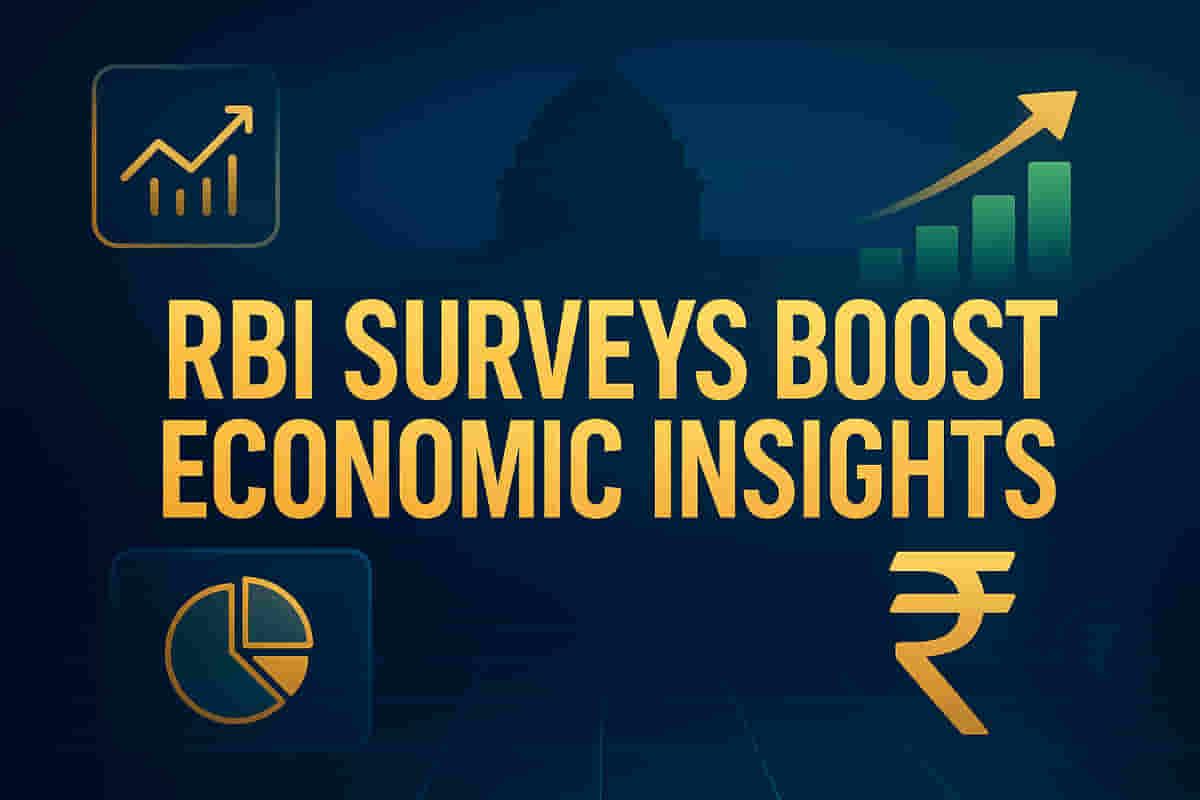Reserve Bank of India Launches Key Surveys for Monetary Policy Formulation
Economy
|
31st October 2025, 4:58 PM

▶
Short Description :
Detailed Coverage :
The Reserve Bank of India (RBI) has launched a new round of three significant surveys designed to inform its monetary policy. The Inflation Expectations Survey of Households (IESH), conducted in 19 cities, will gauge what households believe future inflation will be based on their own spending. The Urban Consumer Confidence Survey (UCCS) will collect qualitative feedback from urban residents regarding the general economy, jobs, prices, income, and spending habits, measuring short-term shifts in consumer sentiment. Concurrently, the Rural Consumer Confidence Survey (RCCS) will gather similar perceptions and expectations from households in rural and semi-urban areas across 31 states and Union Territories, focusing on employment, income, spending, and price trends.
Impact These surveys are critical because they provide the RBI with real-time data on public perception of inflation and economic conditions. This information is vital for the Monetary Policy Committee (MPC) when they deliberate on interest rates and other policy measures to maintain price stability and support economic growth. The insights will be particularly important for the MPC's meeting on December 3.
Difficult terms explained: Monetary Policy: Actions taken by a central bank, like the RBI, to manage the money supply and credit conditions in an economy to achieve goals such as controlling inflation and stimulating economic growth. Inflation Expectations: What households and businesses anticipate the rate of inflation to be in the future. These expectations can influence current economic behavior, such as spending and wage demands, and can impact actual inflation. Consumer Confidence: A measure of how optimistic consumers are about the state of the economy and their personal financial situation. High confidence often leads to increased spending, while low confidence can lead to reduced spending.